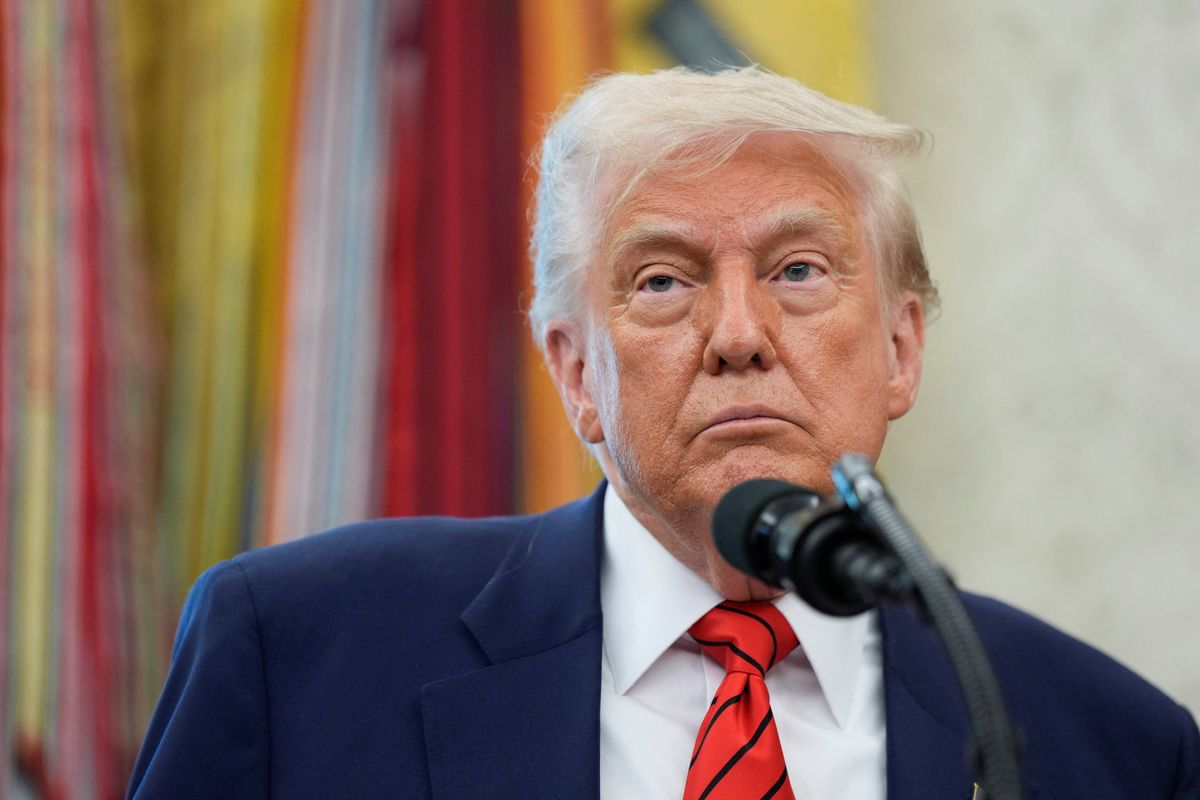Trump calls rising India-Pakistan tensions 'a shame'
Nuclear-armed neighbors exchange fire as US urges diplomatic solution

U.S. President Donald Trump speaks during a swearing-in ceremony of Special Envoy Steve Witkoff in the Oval Office at the White House in Washington, D.C., U.S., May 6, 2025.
Reuters
Trump says he hoped for quick end to India-Pakistan tensions
US has held talks with both sides in recent days
Washington is a close partner of India and an ally of Pakistan
U.S. President Donald Trump termed rising India-Pakistan tensions a shame, after India launched an attack on Pakistan following a deadly April 22 attack in India-administered Kashmir.
India claimed it attacked nine sites in Pakistan and Pakistani administered Kashmir early on Wednesday Asia time and late Tuesday U.S. time, and Pakistan said it was mounting a response.
"It's a shame, we just heard about it," Trump told reporters at the White House. "I guess people knew something was going to happen based on a little bit of the past. They've been fighting for a long time."
The U.S. president added: "I just hope it ends very quickly."
U.S. Secretary of State Marco Rubio said on X he was "monitoring the situation between India and Pakistan closely" while adding that Washington will continue to engage the nuclear-armed Asian neighbors towards a "peaceful resolution."
The Indian embassy in Washington said Indian National Security Adviser Ajit Doval spoke with Rubio and briefed him about India's military actions.
A State Department spokesperson later said: "We are aware of the reports, however we have no assessment to offer at this time. This remains an evolving situation, and we are closely monitoring developments."
Balancing act
India is an important U.S. partner for Washington at a time when it is aiming to counter China's rising influence. Pakistan remains Washington's ally even as its importance diminished after the 2021 U.S. withdrawal from neighboring Afghanistan.
In recent days, Washington urged the nuclear-armed Asian neighbors to work with each other to de-escalate tensions and arrive at a "responsible solution."
Top U.S. leaders, including Trump, offered support to India after the April 22 Islamist militant attack in which 26 people were killed. American officials did not directly blame Pakistan.
Analysts said last month that Washington may leave India and Pakistan on their own in the early days of the tensions, in part because it already has a lot to deal with, given U.S. involvement in trying to reach diplomatic goals in Russia's war in Ukraine and Israel's war in Gaza.
The U.S. State Department has said it was in touch with the Asian neighbors at multiple levels and Secretary of State Marco Rubio held calls last week with both nations.










Comments
See what people are discussing